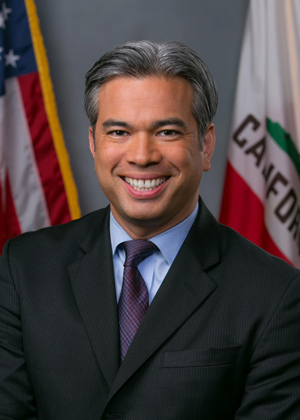July 16, 2025 - OAKLAND – California Attorney General Rob Bonta today filed a lawsuit challenging the unlawful termination of the Federal Emergency Management  Agency’s (FEMA) Building Resilient Infrastructure and Communities (BRIC) grant program. Since 2020, FEMA has made billions of dollars available under the BRIC program to prepare for and mitigate the risks from disasters before they happen. From flooding to wildfires to landslides to earthquakes, California is uniquely at risk from natural disasters and the largest beneficiary of this program; already, it has been awarded tens of millions of dollars, and if the program continues, could receive over a billion more for projects that FEMA had selected for grant funding. In today’s lawsuit, Attorney General Bonta, alongside a coalition of 19 other states, asks the court to compel FEMA to reverse the unlawful termination of the BRIC program so that communities across the country can protect themselves from natural disasters before they strike.
Agency’s (FEMA) Building Resilient Infrastructure and Communities (BRIC) grant program. Since 2020, FEMA has made billions of dollars available under the BRIC program to prepare for and mitigate the risks from disasters before they happen. From flooding to wildfires to landslides to earthquakes, California is uniquely at risk from natural disasters and the largest beneficiary of this program; already, it has been awarded tens of millions of dollars, and if the program continues, could receive over a billion more for projects that FEMA had selected for grant funding. In today’s lawsuit, Attorney General Bonta, alongside a coalition of 19 other states, asks the court to compel FEMA to reverse the unlawful termination of the BRIC program so that communities across the country can protect themselves from natural disasters before they strike.
“Nearly thirty years ago, both Democrats and Republicans in Congress recognized a simple fact: Preparing for disasters, instead of just reacting to them, saves money and lives,” said Attorney General Bonta. “Yet in the name of cutting waste, fraud, and abuse, President Trump and his lackeys have once again jeopardized public safety with their indiscriminate slashing of pre-disaster mitigation funding. We’re taking them to court – not because we want to, but because we have to. As we continue to build a climate resilient California, we deserve a federal government that is a partner, not a roadblock in our efforts – and that’s exactly what Congress intended.”
Across five Presidential administrations, Congress and FEMA have worked together to provide funding through FEMA’s pre-disaster mitigation program so that communities across the nation can invest in projects that reduce harm from natural disasters. The rationale is simple: by proactively fortifying our communities against disasters before they strike, rather than just responding afterward, we will reduce injuries, save lives, protect property, and, ultimately, save money that would otherwise be spent on post-disaster costs.
Given the program’s effectiveness in protecting both people and pocketbooks, it is little surprise that it has had broad bipartisan support. The bill codifying the program passed the House of Representatives by a vote of 415–2 and passed the Senate by unanimous consent before President Bill Clinton signed it. More recently, during President Trump’s first term, a bipartisan group of legislators overwhelmingly passed a bill by a vote of 398–23 in the House and 93–6 in the Senate that provided the program with an additional funding stream. And in 2021, Congress invested another $1 billion in the program through the bipartisan Infrastructure Investment and Jobs Act.
In California, projects that have been awarded funding include:
- A project in City of Rancho Palos Verdes to reduce geologic landslide movement that threatens most of the City’s residents and infrastructure, including a major arterial roadway that provides community and emergency access, sanitation sewer lines located along this roadway, electric and communication lines, potable water lines, and gas lines. Without this project, landslide movement will continue to threaten critical infrastructure, damage homes and property, and endanger lives.
- A project in the City of Sacramento to mitigate flooding of five major interchanges, 3.9 miles of a major interstate highway, a runway at an airport, surface streets, 27,000 housing units, and more. Among other things, the project would have improved floodwall sections, improved levee sections, and relocated a pump station.
- A project in Kern County to seismically retrofit the Kern Valley Healthcare District’s hospital that provides acute care and emergency medical services to a remote population in the mid-northern region of the Kern River Valley area. Unless seismically retrofitted, the hospital may soon need to close. This would force hundreds of thousands of Californians to seek services at hospitals over two hours away.
In Texas, where heavy rains turned into devastating floods earlier this month, FEMA was set to provide hundreds of millions in federal funding for pre-disaster mitigation projects, including for several flood mitigation projects.
All that changed when Cameron Hamilton, who the Trump Administration unlawfully installed to act as FEMA’s Administrator, suddenly shut down the program. His unilateral decision to shutter the nation’s largest, most popular, and most cost-effective pre-disaster mitigation program is illegal. Neither Cameron Hamilton nor his successor, David Richardson, were lawfully appointed or qualified to run FEMA, as required by the Constitution’s Appointments Clause and statutory requirements. Their purported termination of the BRIC program flatly contravenes Congress’s decision to continue to fund it, in violation of the U.S. Constitution and Congress’s power of the purse. In their lawsuit filed today in the U.S. District Court for the District of Massachusetts, Attorney General Bonta and a coalition urge the court to reverse FEMA’s unlawful decision to shut down this program – before the devastating impact of this loss of funding results in permanent damage to our communities.
Attorney General Bonta joins the attorneys general of Arizona, Colorado, Connecticut, Delaware, Illinois, Maine, Maryland, Massachusetts, Michigan, Minnesota, New Jersey, New York, North Carolina, Oregon, Rhode Island, Vermont, Washington, and Wisconsin, as well as the state of Pennsylvania, in filing the lawsuit.
A copy of the lawsuit will be available here.
Source: CA. DOJ



